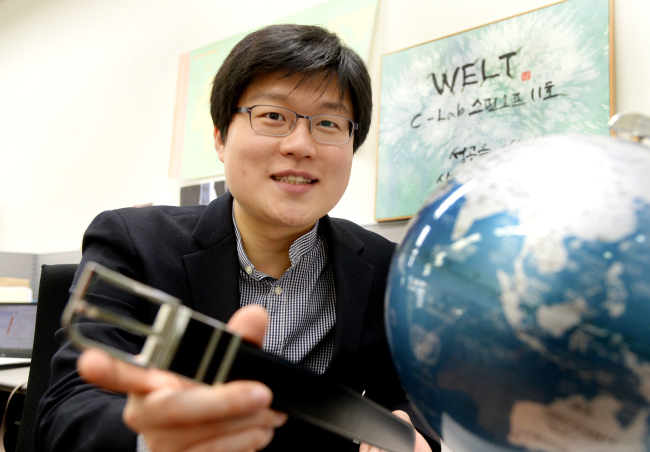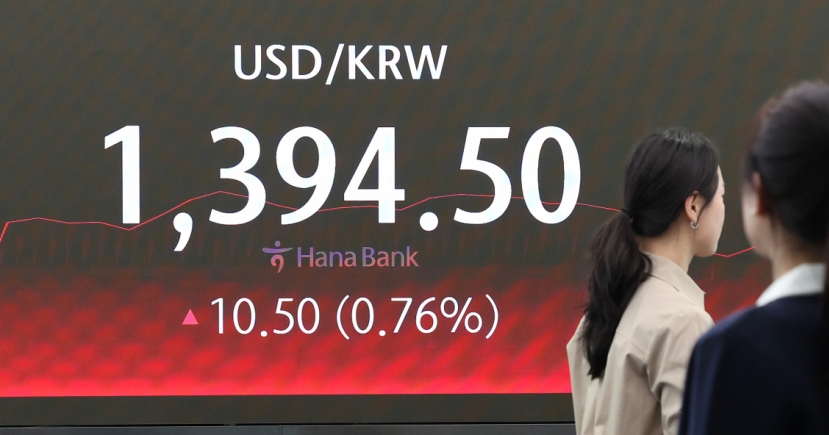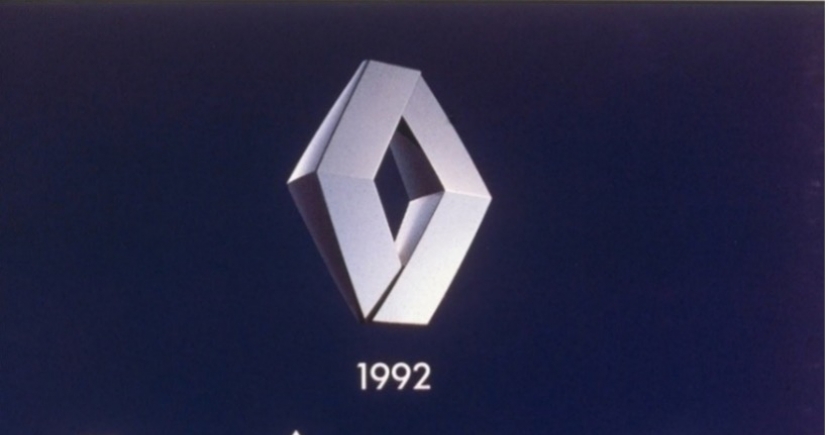Startups
[INTERVIEW] Welt smart belt monitors wearers’ health without intrusion
[THE INVESTOR] When it comes to wearables, the immediate image that comes to mind is usually a smartwatch or a fitness tracking band worn on the wrist by an early adopter of new technology.
Looking to overturn this image, a South Korean startup spun off from Samsung’s in-house venture program Creative Lab, has set out to introduce a health-tracking device that comes in the form of a conventional item of clothing -- a belt.
Founded by doctor-turned-entrepreneur Kang Seong-ji, Seoul-based Welt has developed a “wellness belt” -- hence Welt -- that links up to a smartphone app and can run for two months on a single charge.
 |
Kang Seong-ji, the founding CEO of Welt |
Though some may see idea of a smart belt as tacky, the Welt looks no different from a regular leather belt except for a small charging port on the side of the buckle that is barely noticeable.
It uses magnetic sensors in the buckle to measure tension and estimate waist size -- considered an important health metric that can help predict the risk of cardiovascular disease and other conditions.
Like other wearables, the device also counts the number of steps walked, calories burned as well as hours spent sitting down throughout the day.
Using such information, the belt makes you aware of minor weight gain that might otherwise go unnoticed. If you overate the previous day -- detected by changes in your waistline -- the app will even tell you how many steps you should walk to burn off the extra calories.
Compared to other wearables, Welt’s founding CEO Kang Seong-ji told The Korea Herald that the Welt had a better chance at going mainstream as it brings fitness tracking into people’s lives with minimal disruption.
“Why should people wear the Welt? It’s why people wear belts in the first place -- to keep their pants up of course. But just by wearing what you’re used to wearing every day, users can obtain additional insights about their bodies and naturally become more mindful of their health,” Kang said.
“When presented with a regular belt and a smart belt with similar design, pricing and brand value (as Welt collaborates with fashion brands), there is no reason why people would not go for the smart belt,” he said.
Taking off as an in-house venture within Samsung, Welt was spun off as an independent company in July 2016. It has been steadily widening its presence in the global wearable tech scene, leading a successful $90 million Kickstarter campaign in 2015 and scoring high reviews at this year’s International Consumer Electronics Show.
Behind the startup’s success is Kang, a licensed doctor and businessman with medical insights, direct experiences in preventive healthcare and a strategic vision for the digital healthcare sector.
Kang, 31, graduated from Yonsei University’s College of Medicine in 2009. Instead of going straight into his medical internship training like his peers, he joined the Ministry of Health and Welfare where he was designated to a team tasked with building Korea’s first preventive health care system using digital technologies.
“Hospitals are institutions that treat people who are already ill. At the ministry, which places importance on public health management, I began to see potential in ways to manage people’s health before they become ill,” Kang said.
Three years later, he built a mobile app, which encourages people to walk more by offering them rewards for arriving at certain locations tracked via GPS. The app, however, largely failed to gain traction at the time, Kang said.
“It was a humbling experience that taught me how difficult it is to change people’s behavior. Getting them into a new habit -- of using a new service -- is difficult, not to mention making them exercise,” he recalled.
Kang returned to his path as a doctor by interning at Yonsei University’s Severance Hospital. Six months into his doctor training, he received a job offer from Samsung Electronics and accepted it, joining the tech giant’s health care business division.
After entering Samsung in 2014, Kang decided to take another aim at digital health care via a device already worn by many people -- a belt that makes wearers aware of their dietary habits and motivates self-driven change. Samsung’s C-Lab decided to back the project with full support.
After making prototype appearances at global tech fairs, Welt officially arrived in the consumer market last month. The smart belt is now sold under Samsung C&T’s fashion brand Bean Pole — at 200,000 won ($178) in Korea. It plans to embark on overseas markets after stabilizing its sales and warranty services, with an initial focus on Japan and Hong Kong.
Looking ahead, the startup plans to further tap into the fashion industry by collaborating with more global fashion labels. The Welt will also be marketed alongside other wearables inside electronics stores to expand its sales channels, Kang said.
Expanding into new product categories, Welt is also preparing to introduce smart earphones that detect body temperature. It hopes to introduce them as in-box accessories for upcoming smartphones, including but not limited to those made by Samsung, Kang said.
“The smart earphones are still a prototype and we’re still working to outline exactly what value the data they obtain can bring to consumers, businesses and the health care sector,” Kang said.
By Sohn Ji-young / The Korea Herald (jys@heraldcorp.com)








